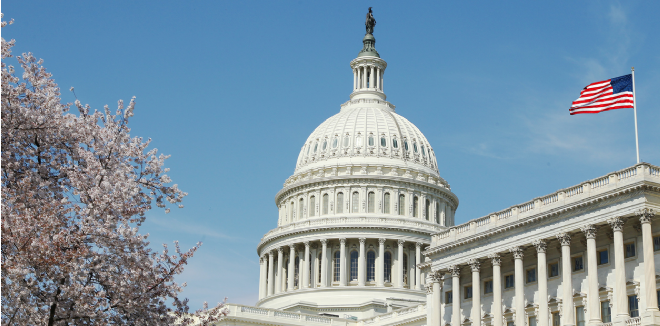Year-End Legislation Addresses Funding, COVID-19 Relief, and Health Care

Last night, Congress passed a $900 billion combined omnibus appropriations and Coronavirus relief package. The massive bill, totaling 5,593 pages, funds the federal government through September 2021, and includes relief through direct stimulus payments of $600 per family member for those who make under $75,000, an additional $300 in unemployment for eleven weeks, and an extra $284 billion for the Paycheck Protection Program.
The legislation provides additional COVID-19 funding for the following areas:
- $20 billion for vaccines
- $8.75 billion for vaccine distribution (including $300 million directed towards high-risk and underserved populations)
- $22.4 billion to states for testing, tracing and mitigation program (including $2.5 billion directed towards high-risk and underserved populations)
- $3.25 billion for the National strategic stockpile
- $4 billion toward mental health and substance use disorder services
The legislation also adds $3 billion for the Provider Relief Fund (PRF) and provides clarity on the fund including:
- Requires additional funding for the PRF have 85 percent be allocated equitably by considering financial losses and changes in operating expenses occurring in the third or fourth quarter of calendar year 2020, or the first quarter of calendar year 2021
- Clarifies that payments made under the fund prior to September 19, 2020 must calculate lost revenues based on the FAQ guidance released on June 19, 2020
- Clarifies that eligible health care providers may transfer payments among subsidiary eligible provider of the parent organization
A number of expiring health care extensions were addressed in the legislation including:
- Extension of Medicare sequester moratorium through March 31, 2021
- Extension of Medicaid DSH reduction through September 30, 2023
- Extension of Money Follows the Person Rebalancing Demonstration through September 30, 2023
- Extension of Medicare work geographic index floor through January 1, 2024
- Extension of the Independence at Home demonstration program through December 31, 2023
- Extension for community health centers, the National Health Service Corps, and certain diabetes programs
Separate health care provisions were also pulled into the bill utilizing the last legislative vehicle of the 116th Congress. With many retirements and undefined leadership in the Senate next year, this legislation encompasses many items that have been worked on over the last two years in the health care committees:
- Increases the physician fee schedule codes for all providers by 3.75 percent in 2021
- Surprise billing provisions; including health insurance and provider requirements, determination of out-of-network rates and a dispute resolution process, and restrictions and reporting for air ambulance services
- Moratorium on payment under the Medicare physician fee schedule of the add-on code (G2211) for inherently complex evaluation and management visits through January 1, 2024
- Continues the current Alternative Payment Model (APM) thresholds for two additional years (performance years 2021-2022; payment years 2023-2024), allowing more providers to qualify for the 5 percent APM payment set to increase in 2021
- Permanently expands telehealth for mental health services
- Provides for the distribution of 1,000 additional Medicare-funded graduate medical education (GME) residency positions
- Extends coverage months of immunosuppressive drugs for kidney transplant patients
- Permits direct payment to physician assistants under Medicare
- Adjusts calculation of hospice cap amount under Medicare
- Delays implementation of the mandatory radiation oncology model another six months to no earlier than January 1, 2022
- Gives teaching hospitals an opportunity to correct artificially low FTE Caps and Per Resident Amounts that resulted from hosting residents for short term durations
Congress will likely adjourn for the year in the coming days. Swearing-in of the 117th Congress will occur on January 3, 2021, followed by the January 5, 2021 Georgia run-off election to determine who will hold the Senate majority, which needs to occur before they can organize Senate Committees. Passage of this legislation allows some breathing room for the new Congress and President-elect Biden’s Administration as they begin work to continue to address COVID-19 and determine health care priorities in the new year.
HLB will provide further analysis on specific topics, such as surprise billing, in future alerts.
For further information, please contact Kelly Delmore or Monica Massaro in Washington, D.C.

